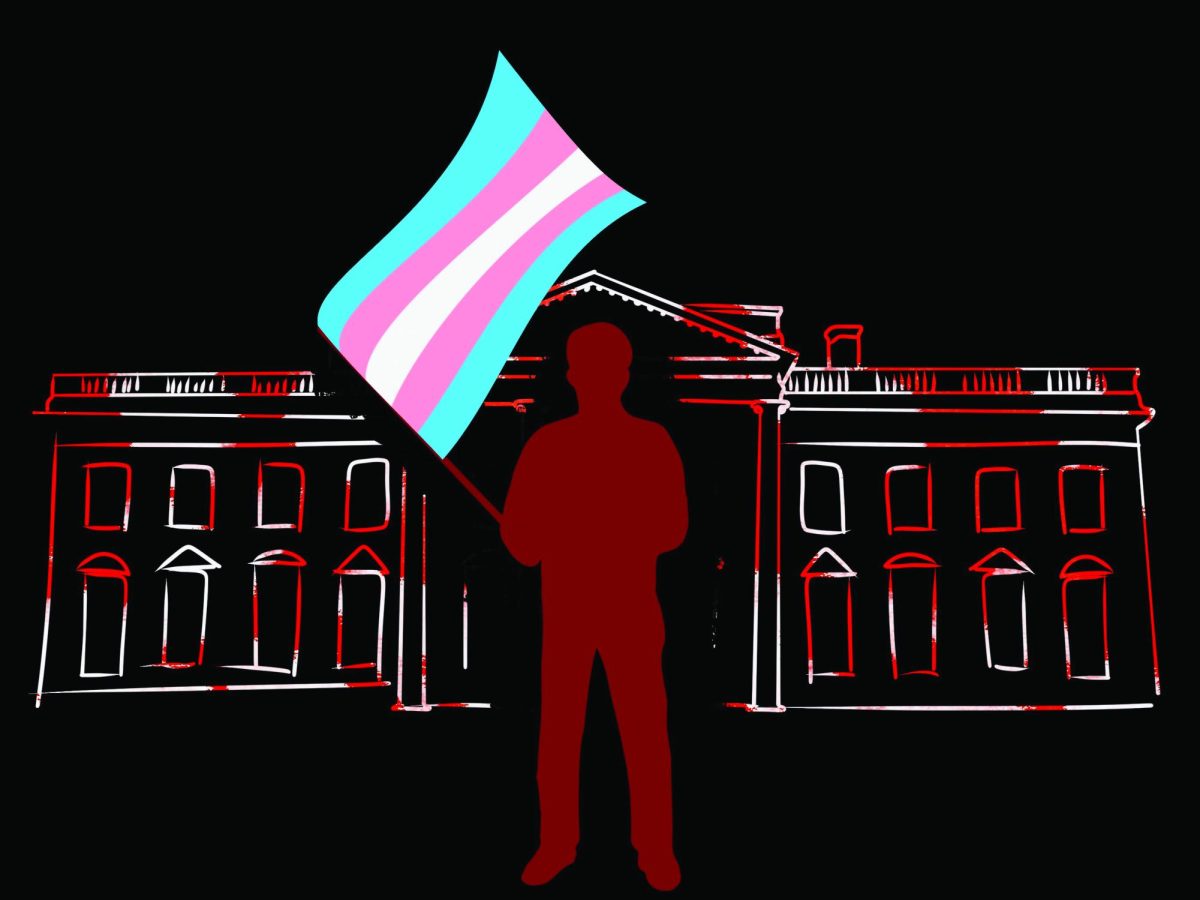Dialing up Debate

As the new school year approached, readers of major news outlets were inundated with articles and opinion pieces about high school cell phone policies. The question: To ban or not to ban?
A study conducted by the Pew Research Center in June revealed that 72% of high school teachers in the United States believe cell phones pose a major distraction in the classroom.
According to an article from Education Week, as of Aug. 28, 13 states have introduced some kind of legislation or created a pilot program out of concern for students’ use of cellphones in schools.
The California legislature recently passed the Phone-Free Schools Act, which is expected to be signed by Gov. Gavin Newsom. Citing a 2015 study by the London School of Economics and Political Science and the book “iGen” by Jean Twenge, the bill requires schools to adopt a policy to limit or prohibit student smartphone use by July 2026.
Banning phones in the classroom could prevent students from being distracted in class by notifications or even just the thought of their phone. Many educators and administrators believe it is important to ban phones all day: in the hallways, at lunch and during free periods. While this might face the most objection from a student body, it also might be the most effective kind of phone policy.
This year Chicago’s Francis W. Parker School expanded its ban on phones during class to the whole day because administrators felt the previous policy didn’t have enough of an impact on the school community outside of lessons, according to The Parker Weekly student newspaper.
While it’s too soon to know the effect of Parker’s new policy, other schools across the country are observing the long-term effects of limiting phones.
At Dymally High School in Los Angeles, the administration spent around $12,000 to get magnetic pouches for students’ phones, according to reporting from the Los Angeles Times, one of the solutions many schools have turned to. Students place their phones in these pouches when they enter school and a special magnet is used to open the pouch on students’ way out each afternoon.
At first, students attempted workarounds like putting old phones in the pouches or buying their own magnets to trigger the magnetic release function. However, almost five years after the ban was originally introduced — with a break during the coronavirus pandemic school closure — fighting is down, test scores are up, and teachers have noticed a real shift in the hallways and the cafeteria. Students talk to each other; they play games during lunch.
Dymally High School principal Darvina Barley said, “They really became kids again. We heard conversations occurring again, lunchtime was no longer quiet — it became a real schoolyard with real activity.”
Students’ antisocial tendencies have increased since the pandemic. The Centers for Disease Control and Prevention recently reported that 40% of students experience “persistent feelings of sadness or hopelessness.”
Poor mental health in teenagers may be exacerbated by their ability to hide behind their phones during school. High school faculty and administrators are looking to phone bans to strengthen their school communities and help curb the shift toward isolation. They must weigh the new influx of research against inevitable student concerns to chart a course of action regarding phone-use.
A committee of U-High faculty has been formed to research the potential benefits of restricting student smartphone use in the high school.
The idea was born when two students approached art teacher Sunny Neater. On an exchange trip they had spent time at schools where phones weren’t allowed and felt it made a huge impact on the social environment.
“They were like, it was so different being in schools where not everyone was defaulting to being on their phones during the downtime,” Ms. Neater said. “They were like, it was so nice and people were outgoing toward us. People were curious.”
Ms. Neater put out a call for interested faculty members. Librarian Susan Augustine responded after hearing concerns from fellow U-High parents.
“If I didn’t have any children I might see it in school but not think about it as much,” Ms. Augustine said. “I wouldn’t be surrounded by parents who say this is a problem.”
The faculty members also hope that restricting phone use will create a more cohesive community of students.
“Lab doesn’t feel like a community,” Ms. Neater said. “We talk community, community, community, but it feels like people are retreating so often. They’re retreating to their own worlds on their phones.”
An initial meeting during planning week drew a large group of faculty to attend. They were all concerned, particularly in relation to students’ mental health, Ms. Augustine said.
U-High’s current cell phone policy was created before social media established its chokehold on teenagers, and some faculty members find it outdated. Many, including Ms. Augustine, are advocating for an extension of the middle school policy where students keep their cellphones in backpacks or lockers.
Some parents may be concerned about this policy shift because it would impede their ability to contact their children in emergencies, specifically in the event of a school shooting.
As a parent, Ms. Neater understands these concerns, yet her experience with in-school emergencies led her to view teenagers’ possession of phones as unhelpful in those situations.
“I’ve been in a school shooting,” she said. “But I don’t know anyone else in this building who’s been in a school shooting. And I was really glad that no one was on their phone at the moment.”
Having a cell phone in class trains students to rapidly switch focus between their device and the ongoings of their class — a skill that undermines their ability to engage deeply with academic material, according to clinical psychologist and author Dr. Roni Cohen-Sandler.
Dr. Cohen-Sandler, who has studied how cell phones and social media affects teens, including in academic settings, said in a Midway interview that as cell phones have become “an extension of the teenage body,” they have also become greater distractions for students.
“Using a cell phone requires your brain to do different things than what it requires in the classroom,” Dr. Cohen-Sandler said. “A phone provides information in a way that your brain has to process things very quickly and jump from thing to thing. And over time, neuropsychological studies have shown that it becomes harder to do the work that you have to do in school, which requires you to focus for a longer period of time rather than on just one thing. Some people are calling it kind of like a generational ADHD.”
Dr. Cohen-Sandler also said cell phones serve as a way for teens to delay stress and anxiety.
“If you’re doing a task that you’re not particularly enjoying or a task that’s difficult, we look for relief,” Dr. Cohen-Sandler said. “We want to avoid it, and so a phone is best built in ‘avoider,’ imaginable. It relieves any stress or anxiety that we’re experiencing with our work.”
In a story, Dr. Cohen-Sandler shared how baking a favorite recipe while observing the Sept. 10 presidential debate on television caused her to ruin the final culinary product. She says this was because her attention was in two places at the same time, emphasizing how science does not largely support the idea of multitasking.
“Your brain cannot focus on two different tasks at the same time,” Dr. Cohen-Sandler said. “When they say ‘multitasking,’ that’s a misnomer. What they’re really better at doing is rapidly switching their focus from one thing to another. What the studies have shown, and what I tell students that I work with all the time, is if you want to get your work done, devote a time just to do your work, because you’re actually spending 25% more time on it otherwise. The other thing is, it’s not just the time, it’s the quality. So people who are multitasking make more mistakes. Don’t tempt yourself.”
In this unscientific Midway survey conducted on Sept. 12, students shared their opinions on the notion of restrictions on cellphones at U-High. Of the 188 students who took the survey, 47 were ninth graders, 40 were sophomores, 52 were juniors, and 49 were seniors. Survey and graphic by Clare McRoberts

Chloë: Hi Declan, have you heard about the possible phone ban that is being proposed in states and counties across the country?
Declan: Yes, I’ve heard that it’s been spreading all over Illinois. I think it’s a good thing that we are standardizing regulations over phone use.
Chloë: Really?! I think that a possible phone ban, like what they did at Francis Parker School, is an unnecessary rule and takes away a vital resource for safety and security.
Declan: I don’t think an outright ban is the best solution, but I think more rules should be in place. So students can use their phones without worrying about it being confiscated for no reason. What do you suggest Chloë?
Chloë: I think that teachers should be able to choose their own regulations based on their own classes. Like last year one of my teachers had a phone basket for students to put their phones in as they came into class. But in another, during work periods, my teacher allowed us to use our phones to listen to music. I think with the nuances of different classes, teachers making their own choices and keeping their autonomy would be the best solution. What do you think?
Declan: I have had past experiences with teachers taking away or threatening to take away my phone while using it in the hallways. I think to avoid confusion the entire school should have a standard rule for when and where it is OK to use phones. I think that phone bins work well in theory, but sometimes you can lose your phone or it can also be a distraction in itself.
Chloë: I hear you, and I understand where you’re coming from. I think that perhaps a rule about phone usage, in general, would eliminate experiences — like what you had — from happening to students. But I think the idea of fully getting rid of phones would cause many difficulties for students like finding friends during free periods, arranging transportation with parents or even getting in contact with authorities during an emergency.
Declan: I don’t think we should outright ban phones, but we should have some ideas about a standardized regulation. I think maybe we can find a middle ground.
Chloë: Sure, I can see that. If a teacher chooses to collect phones from students, based on their own observations of phone usage in their class, then it would prevent the distractions that phones may cause to students. But at the same rate, laptops and iPads provide the same possible level of distraction as phones, yet we would not ban those tools. I just think that we have to figure out where we draw the line.
Declan: I agree, it’s hard to determine when and where we should use our phones. Maybe there is no right answer.
Chloë: This situation just feels very paradoxical, and yet we need some solution that benefits all parties involved.
Declan: Well, we agree on that much. Anyways, see you later Chloë.
Chloë: Wow what a great, mentally stimulating discussion. Have a great day Declan!
Do you think there are more harms or more benefits to having your cellphone at school? Why?
“More harms because I would say they pose a distraction to any student that has them in class, and they make us a little bit more disconnected from each other as well.”
— Asa Bordelon, senior
“I would say there are more harms. I think a lot of times people can get distracted in class or that can lead to academic dishonesty, like when you see people using ChatGPT or Photomath during math tests.”
— Gabi Novak, sophomore
“I think there’s more benefits. If you take away phones people are still gonna have them, but they’re gonna get in more trouble and it’s gonna be more work than it’s worth.”
— Rebecca Rupp, sophomore
“There are definitely a lot more benefits than harms. Phones allow for students to communicate with homework and is an overall academic booster. Also, putting restrictions on high school students just doesn’t prepare them for college when you have full range and access of your phone. In order to start preparing you for college, you should be able to manage your phone. That’s a conversation with a family, but school-wide it’s very restrictive. For some families, they might want their students to have phones on them in case of an emergency. If the phone is a problem, that’s a family problem not a school problem.”
— Angela Fitzgerald, junior
“I think there are more benefits. If you use them responsibly you can check in with your friends during the day or your parents during the day, and I think not having phones is not helpful in the long run.”
— Ainsley Williams, senior
“I think with the recent uptick in school shootings and stuff, even though we’re really protected here, it’s important for people to feel safe and having their phones, just to reach out to their family or anything or if something happened, just to have a way to communicate. I feel like that’s really important.”
— Skylar Murphy, ninth grade






















